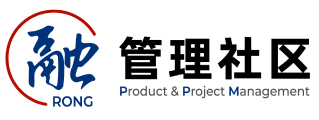敏捷框架介绍:DSDM(动态系统开发模型)
 737 2023-07-12
737 2023-07-12
我们非常重视原创文章,为尊重知识产权并避免潜在的版权问题,我们在此提供文章的摘要供您初步了解。如果您想要查阅更为详尽的内容,访问作者的公众号页面获取完整文章。
DSDM: An Agile Framework Overview
DSDM (Dynamic Systems Development Method) is an agile framework that emphasizes business needs, focusing on critical aspects and driving project outcomes by incorporating agile methods and practices. It operates on multiple levels, including philosophy, principles, pillars, and foundations and employs a structured approach to project delivery.
Philosophy and Principles
The philosophy of DSDM is rooted in eight core principles that promote clear communication among all project participants. These principles are supported by four major pillars: process, people, products, and practices, all resting on a foundation of common sense and pragmatism, which insists on the practical effectiveness of methods and practices.
The Eight Principles of DSDM
- Focus on business need
- Deliver on time
- Collaborate
- Never compromise quality
- Build incrementally from firm foundations
- Develop iteratively
- Communicate continuously and clearly
- Control is visualized
The Six Phases of DSDM
Prior to starting a project, DSDM outlines six states, from the initial concept to the delivery of increments. Beginning with a vague pre-project phase, it moves through feasibility and project foundations to establish the project's direction. During the evolutionary development phase, core activities such as iterations, timeboxing, and MoSCoW prioritization are utilized. Following development, the deployment of results occurs incrementally, with a final phase that reviews the business outcomes and processes.
DSDM Roles
Key roles in DSDM include Project Managers (PMs) and DSDM Coaches. PMs coordinate management activities throughout the process, linking business needs with the solution delivery team, and ensuring the project proceeds as planned, including managing delays. DSDM Coaches guide the team in adopting agile methods and maturing through iterations.
Hierarchy and Artifacts in DSDM
At the beginning of a DSDM project, a Business Case (BC) is established to outline primary objectives and rationales, which must be approved by senior management. A feasibility report may be required based on the BC, typically created by a business analyst on behalf of the business sponsor.
DSDM Tools and Techniques
DSDM emphasizes rapid product delivery in each iteration, using tools and methods like timeboxing, MoSCoW prioritization, facilitated workshops, iterative development, and modeling and prototyping. Workshops are particularly important for collaborative decision-making and knowledge sharing, requiring a facilitator to ensure efficiency and effectiveness.
Benefits of Workshops
Workshops within DSDM enable consensus-building through focused discussions and provide an ideal environment for system thinking and idea exploration. They allow broader participation in decision-making, ensuring fast and accurate decisions.
想要了解更多内容?


白皮书上线








